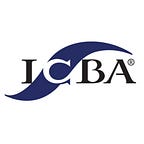By Rebeca Romero Rainey
While negotiations over the next economic stimulus package continue to drag on in Washington, policymakers can advance the economic recovery without a comprehensive deal. Pending legislation to make the federal government’s emergency employment program work for the small businesses it is intended to help has bipartisan support and is primed to pass on a stand-alone vote — if Congress chooses to act.
Implemented under the CARES Act stimulus law, the Paycheck Protection Program has resulted in more than $525 billion in emergency small-business loans to keep Americans employed. The program was designed by policymakers to ultimately forgive the loans, turning them to grants for small businesses that use the funds to retain their workers during the pandemic-induced shutdowns.
Small-business setbacks
Unfortunately for these businesses and the workers and local economies that depend on them, the forgiveness application process is unnecessarily complicated and a source of significant confusion. The Government Accountability Office recently reported that forgiveness application forms and procedures could take up to 15 hours for borrowers to complete and 75 hours for lenders to review.
That could require mom-and-pop shops to hire accountants paying potentially steep fees to help them deal with loans designed to keep them in business — resources that should be dedicated to paying workers and further supporting local economies. Overly detailed review of each loan is simply not practical for borrowers or lenders. For the small businesses that depend on these loans and the local community banks that did the bulk of the lending, these complications cripple a program meant to keep local communities in business.
Simplified forgiveness
While the Small Business Administration recently simplified the forgiveness application for loans of $50,000 or less, more relief is needed to support small businesses. Fortunately, bipartisan legislation pending in both chambers of Congress would simplify the program’s loan-forgiveness process.
The Paycheck Protection Small Business Forgiveness Act (H.R. 7777/S. 4117) would provide simplified forgiveness for PPP loans of $150,000 or less if borrowers attest that they used the loans as intended.
Co-sponsored by 126 members of the House and 31 senators, the bipartisan bill would allow lenders to rely on the one-page attestation form to process these loans. It also would maintain existing enforcement safeguards in cases of fraud or when borrowers spend loan proceeds on disallowed expenses.
Whether Congress takes up this legislation as a stand-alone bill or as part of a newly proposed package to redirect more than $130 billion in unused PPP funds, these provisions will ensure simplified forgiveness for the smallest borrowers while preserving the integrity of the program.
Back in business
Community banks were the predominant lenders under the PPP, making more than 65 percent of program loans and serving nearly 60 percent of PPP recipients. This economic lifeline for local communities has saved an estimated 33.7 million jobs. Amid so much economic turmoil, the nation cannot allow this progress to be undermined by regulatory red tape.
With negotiations over another relief package dragging on in Washington, policymakers should step back and advance targeted updates to existing stimulus to support the economic recovery in local communities nationwide.
Rebeca Romero Rainey is president and CEO of the Independent Community Bankers of America.
